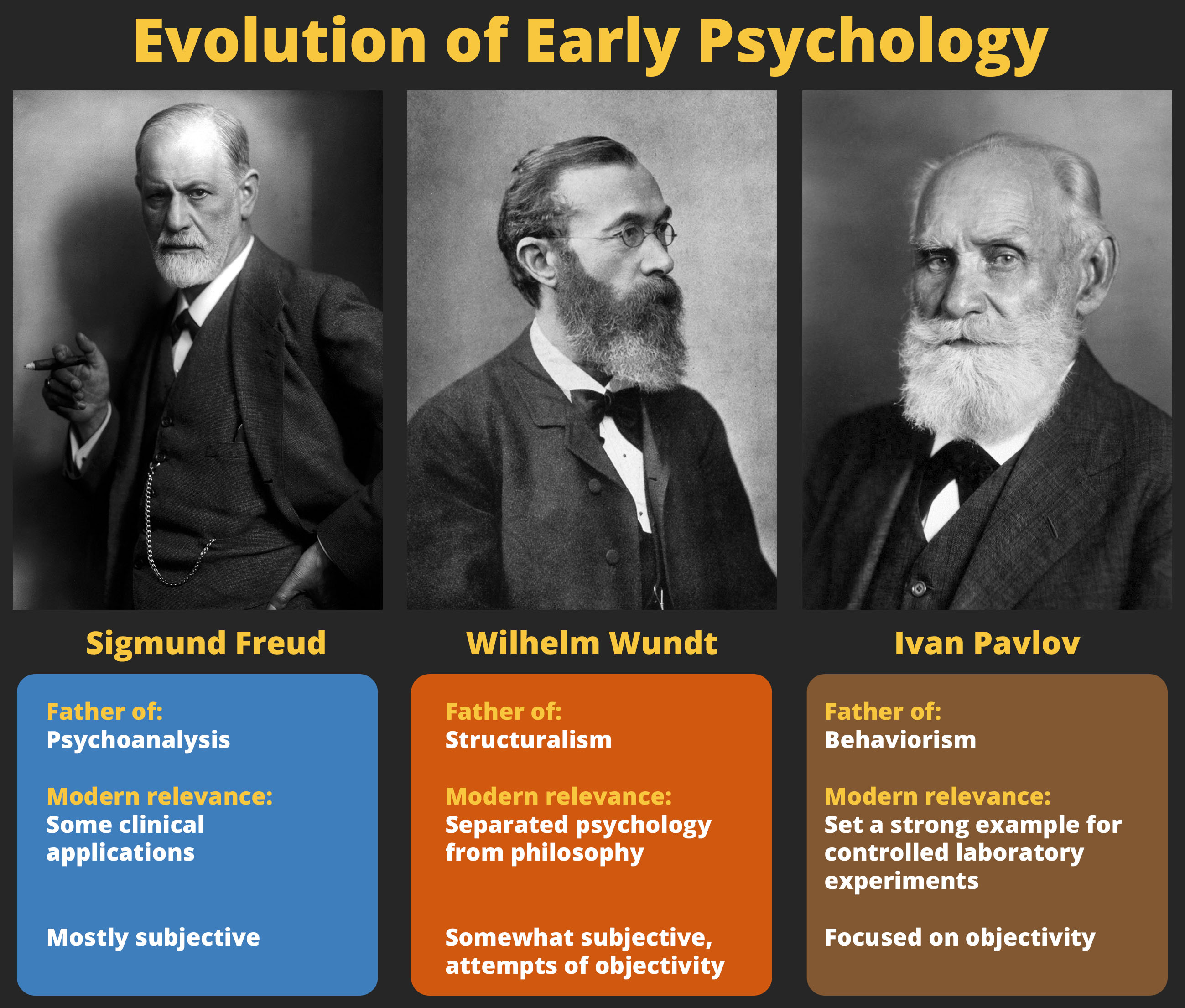Introduction: Psychological Science
What is the science of psychology? Like all sciences, psychologists try to provide answers about how and why things happen in the world. The psychologists’ part of that world is explaining what is going on in the human mind that motivates behaviors. And like other scientists, they follow a scientific process to learn about the human mind. That scientific process is a specific research method that ensures the scientist is arriving at solid, defensible conclusions.
Psychology is really a very new science, with most advances happening over the past 150 years or so. Most people associate modern psychology with the figure of Sigmund Freud (1856–1939), the famous psychologist who practiced psychoanalysis in various unique case studies of the early 20th century. Though Freud is one of the founders of modern psychology and he is historically significant for the discipline, his practices are not considered scientific enough for experimental psychologists today.

Rather, modern psychological science emerged in the late 1800s, particularly when the German psychologist Wilhelm Wundt (1832–1920) founded his lab at the University of Leipzig in 1879. Wundt viewed psychology as a scientific study of conscious experience, which he called “structuralism.” Ultimately, his methods were acknowledged to be too subjective to meet scientific standards and fell out of favor. Nevertheless, his lab was the first to start thinking about how to employ scientific methods to the investigations of human behavior and their relationship to the mind.
The next to adopt a very empirical or experimental approach to psychology were the behaviorists, led by the famous Russian physiologist Ivan Pavlov (1849–1936). In the early 20th century, the behaviorists who followed Pavlov were renowned for their reliance on controlled laboratory experiments and rejection of any unseen or subconscious forces as causes of behavior. Today, most psychologists credit the behaviorists for establishing psychology as a scientific field. However, modern psychologists have returned to Wundt's focus on the mind. They are aided by new technologies, such as brain imaging where one can see and measure the physical workings of thoughts in the brain.
In this unit you will learn about the scientific method as it applies to the subjects of psychology. You will examine the various scientific approaches that have been developed in the field. And you will learn how experiments and studies are analyzed to create a body of accepted scientific psychology principles.